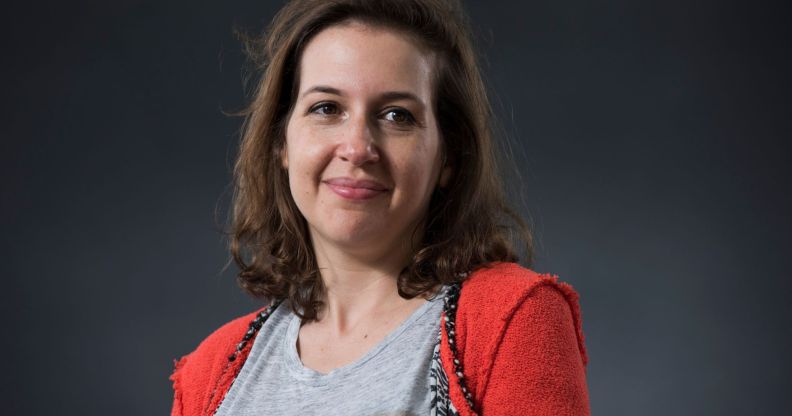Journalist Hadley Freeman condemned for ‘dangerous’ comments about suicidal trans kids

Journalist Hadley Freeman resigned from The Guardian after 22 years in protest over what she described as “bias in the progressive media on transgender ideology”. (Getty)
So-called ‘gender critical’ journalist Hadley Freeman has been criticised for claiming that trans youth use suicidal thoughts “to get their way”.
Freeman made the outrageous claim in a Saturday (7 January) article for The Sunday Times in which she spoke to members of the Bayswater Support Group – an organisation that often claims youth who identify as trans do so to “mask complex causes of distress”.
In the article, the controversial journalist speaks to parents of trans children who, in one form or another, don’t agree with their child’s gender identity.
But it was the reporter’s comments on suicidal thoughts in trans youth that sparked searing backlash.
After explaining that one of the mothers was informed of the incredibly high suicide rate in the trans community, Hadley Freeman then claimed she believed that those who feel truly suicidal never talk about their feelings.
“Suicide is a subject I know more about than I’d like,” she wrote. “In the summer, my 21-year-old cousin killed himself, and I’ve lost three friends to suicide. None of them talked about suicide beforehand, ever.”
She then further claimed that those trans youth had used suicide ideation as a threat “if their parents didn’t help them get sex change hormone and surgery” – both of which are unavailable for trans kids in the UK.
“Suicide threats should always be taken seriously, but as a cry for help, not a demand for compliance.”
The article was met with immense backlash from LGBTQ+ activists who called the comments “dangerous” and “nightmare safeguarding advice”.
Several users pointed to the number of resources that urge parents or guardians whose children express suicidal thoughts to treat them seriously.
In a section detailing how to support a friend or relative dealing with suicidal thoughts, the mental health charity Samaritans wrote that reaching out can often be a “huge relief” for those considering taking their own life.
“If someone does let you know that they are having suicidal thoughts, always take them seriously,” it added. “You don’t have to be able to solve their problems, but, if you feel you can, offer support and encourage them to talk about how they’re feeling.”
Additionally, Children and Young People’s Mental Health Services (CYPMHS) nurse Phil Dore told PinkNews that it is incredibly important to listen to children who are expressing suicidal thoughts.
“If a parent or carer is concerned for their child’s safety they should seek urgent medical advice,” he added. “If they feel a suicide attempt may be imminent, they should bring their child to A&E for a crisis assessment.”
Dore also expressed his disappointment at the article, criticising the “dismissive tone” that Hadley Freeman employed towards youth who show signs of gender dysphoria.
“I’ve worked with a number of trans kids who have had a dramatic improvement in their mental health, simply because those around them started affirming their gender.”
Trans activist Helen, often referred to online as “Mimmymum”, expressed similar criticisms with the nature of the article, saying that it was a “disturbing and deeply flawed piece that perpetuates harmful myths and misunderstandings about trans and gender non-conforming youth”.
“It is reprehensible and evil to try and belittle or misrepresent the alarming rates of suicide among trans youth as some sort of weapon being used by them ‘to get their own way,'” she wrote. “The fact is that trans youth face disproportionately high rates of suicide compared to their non-trans peers.
“This is a devastating and urgent problem that requires our immediate attention and action… Ignoring or denying the existence of this crisis only serves to further harm and marginalise trans youth.”
According to LGBTQ+ charity stonewall, 45 per cent of trans young people have attempted to take their own life, while 84 per cent have self-harmed in some capacity.
Additionally, more than half of LGBTQ+ pupils told the charity that they didn’t know of an adult in their school who they could talk to about issues surrounding their identity.

